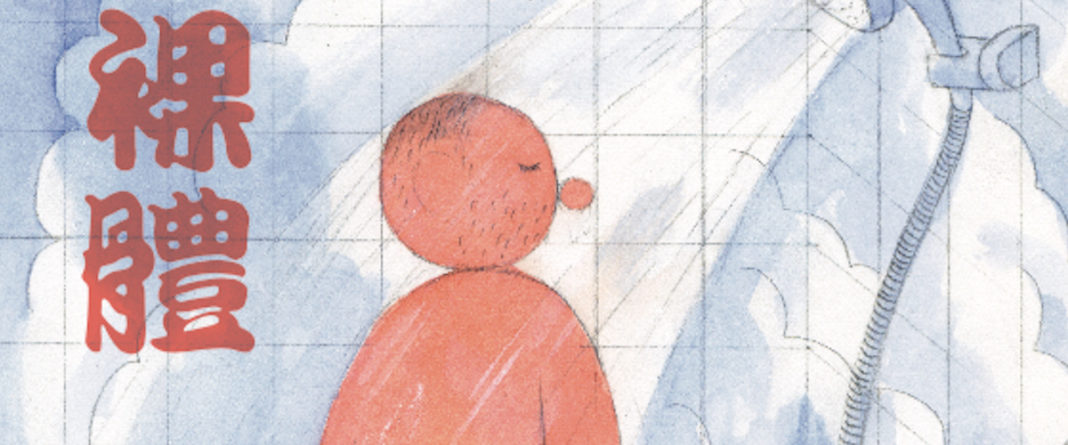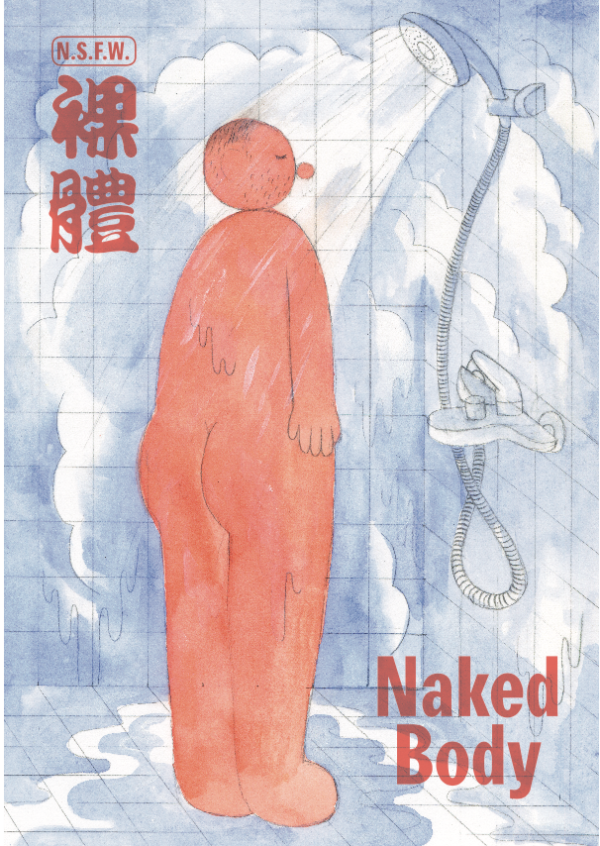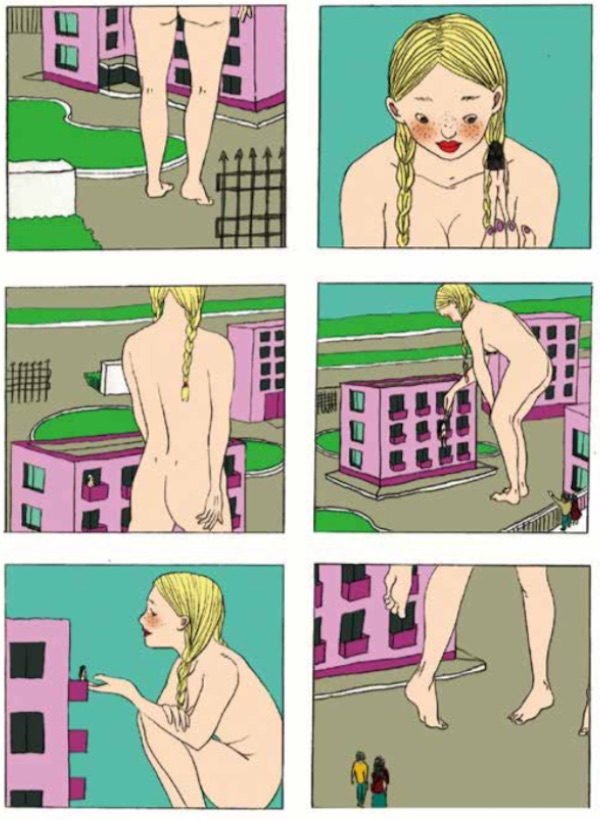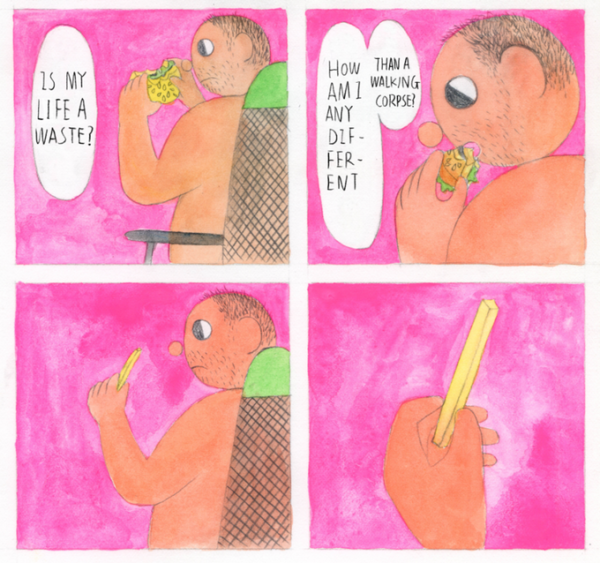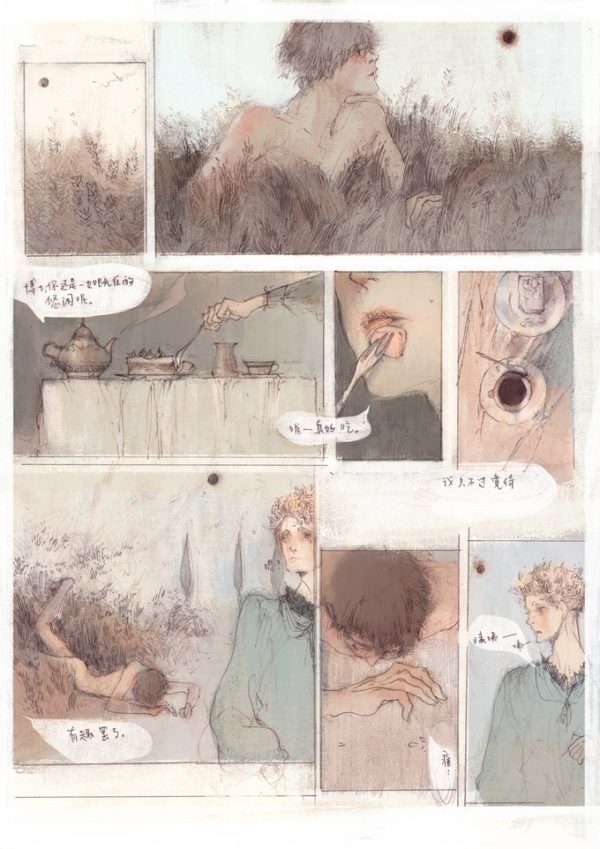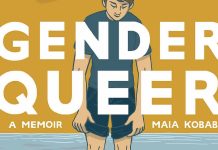Naked Body: An Anthology of Chinese Comics
Edited by Yan Cong, R. Orion Martin, and Jason Li
Paradise Systems
Naked Body opens up a hidden world that not many of us in America actually knows exists. There’s a thriving Chinese comics community, but it’s apparently not easy to access, as many cartoonists fear government crackdowns. You can make studio visits to discover the work, and there are also online networks with privacy controls, like some on WeChat, that cartoonists interact and sell their work without going too public. These aren’t the Chinese comics that you typically hear about.
One of the brightest stars of these rogue cartoonists is Yan Cong, who publishes Narrative Addiction, an anthology that collects work from other Chinese cartoonists. Cong is out in the public eye, regularly a part of gallery shows, but even he has to contend with restrictions and interventions. Most recently, a printer refused to print Narrative Addiction because of nudity, but Cong was eventually able to find someone who would. Cong then teamed Paradise Systems for this English language version of his all-nude comic featuring Chinese Cartoonists for a Kickstarter campaign and subsequent distribution in the U.S.
The creators collected within Naked Body represent an alternative culture within the Chinese comics scene, offering comics that are mostly abstract in story, and sometimes in the visual elements as well. A lot of the stories in Naked Body have an undertone of control and surveillance, some impart feelings of fear, paranoia, and compliance, and many use the central theme —nakedness — to represent some aspect of freedom, which often ends up being attacked, repressed, or transformed into an aberration in the eyes of others.
Naked Body is brimming with creativity and there are some strong artists at work in here. I’ll talk about my favorites in the volume:
Inkee Wang’s brief opening story questions the entire idea of what constitutes the idea of being naked — does it mean your original form? Do biological changes in your appearance negate the idea of being naked as much as clothes do? An obstructive robot certainly seems to think so.
Wang XX takes this idea into real life as a meditation in the bath on the amount of hair a woman’s body has, and how body hair for a woman can be a trigger to self-doubt and insults, as if body image has been shifted into an imaginary zone that no longer takes into account what happens naturally.
Hanada’s wordless piece depicts the world as a sensuous playground for two, apparently unseen, giant women. Its sexual aspects make me think about stories of ancient gods whose existence is tied with the creation of earth and whose well-being directly results in natural manifestations on earth.
Meanwhile Yan Cong’s piece examines nakedness as a personal state within one’s home that in certain cases can signify solitude and disconnection, even as further nakedness is sought out through online channels. In this case, nakedness also signifies the opposite — togetherness and connection — and these two meanings circle back on each other to create longing and defeat.
Zhai Yanjun’s “Xiao Ma’s New Outfit” lampoons fashion and governmental control by depicting a new created trend from a designer — nakedness. It isn’t enough to just be naked, though — you have to purchase something from the designer for truly chic deconstruction. Of course, this doesn’t set well with Chinese authorities. Innovative or conniving, it’s a free market innovation that flirts with ideas of rebellion from social norms.
Wang Hang’s wacky, silent story features a naked man who wakes up one day with a desperate skeleton trying to take grasp of him. His day is filled with continuous narrow escapes with death, but he fails to consider the inevitability of it all.
Shijie Hai‘s “Mortal Questions” presents a naked man walking down the street and his internal dialogue. The questions he asks are more existential ones, having to do with his appearance in public without clothes and the act of observance as a general practice of humanity. Does his public nakedness have something to do with these questions? Or is there a more obvious, down-to-earth answer?
Tianxing Wan begins from the beginning, with an Adam from the Book of Genesis, naked and, most importantly, without sin, and then moves to a later time with a mysterious escapee in the wilderness. It’s a brief drama, but one that brings to question the relationship between nakedness and paradise — is nakedness a symbol of it, or a condition?
Ryan Xie takes some public showers, adds a soap dispenser, and chaos ensues. The soap becomes a vessel by which people are grouped into a strange super-organism. The soap is also a weapon against this bizarre and comical conjoinment.
Sadan’s “Another World” only features nakedness as an aside, an aspect of death that is inescapable. More important is the afterlife — Sadan rectifies the struggle between the spiritual and the secular by bringing together the circumstances by which we live on.


